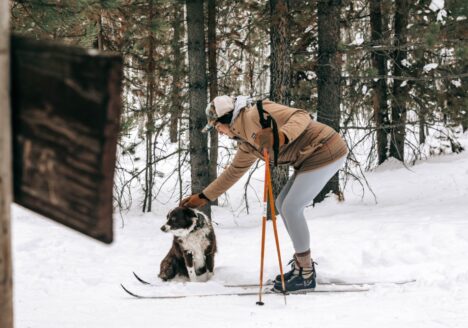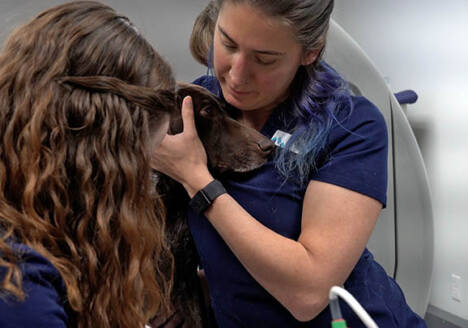The common practice of transporting dogs in the open bed of a truck poses significant risks, leading to severe and often preventable injuries.
“At the Veterinary Referral Center of Central Oregon, we frequently treat dogs with devastating injuries resulting from open-bed truck transport,” Dr. Dileo explains. “These aren’t just minor scrapes; we’re talking about life-altering trauma.”
Common injuries seen by Dr. Dileo in dogs transported in truck beds include:
-
Fall and Jump Injuries:
- Dogs can easily jump or be thrown from the truck bed, especially during sudden stops, turns, or evasive maneuvers.
- Common injuries include:
- Fractured limbs (femur, tibia, radius/ulna)
- Pelvic fractures
- Spinal cord injuries
- Severe lacerations requiring extensive suturing or reconstructive surgery
- Thoracic trauma, including pulmonary contusions (bruised lungs) and rib fractures, which can lead to respiratory distress.
-
Tethering Dangers:
- While tethering might seem like a solution, it can create even more hazardous scenarios.
- If a dog slips or falls over the side, the tether can cause:
- Cervical spine (neck) injuries, including fractures or dislocations.
- Tracheal lacerations or compression, leading to asphyxiation.
- “Even if the dog does not fall completely out, the sudden jerk of the tether can cause internal injuries” Dr. Dileo states.
-
Collision Risks:
- In the event of a vehicle collision, a dog in the truck bed has virtually no protection.
- They are at high risk of:
- Being ejected from the vehicle, resulting in fatal injuries.
- Suffering severe blunt force trauma from impacts with the truck bed or other objects.
- “The forces involved in even a minor collision are enough to cause catastrophic injuries to an unrestrained animal.” Dr. Dileo warns.
Dr. Dileo’s Recommendation:
“The safest place for your dog during vehicle travel is inside the cab, properly restrained in a secure crate or harness,” Dr. Dileo emphasizes. “This minimizes the risk of injury in the event of an accident or sudden maneuver. Prioritizing your dog’s safety is crucial.”


